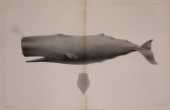Felipe Mancheno
Contributing writer for The Artifice.
Junior Contributor II
- Articles
1 - Featured
0 - Comments
7
- Ext. Comments
3 - Processed
0 - Revisions
0
- Topics
1 - Topics Taken
0 - Notes
2
- Topics Proc.
0 - Topics Rev.
0
- Points
124 - Rank
X - Score
61
Latest Articles
Latest Topics
Why are 'cinematic universes' so compelling?You can rightfully think that franchises are an easy way to grab money nowadays. Instead of searching for new 'forms' to present a story, big studios are betting on established worlds where they can add another thing or two; yet, a lot of us -the audience- fail to find a harm in that. When I went to watch the newest Star Wars, I was conscious that it wasn't going to be a breakthrough, but there was a bigger pull motivating me to follow the story. So I've been wondering: Why are we so compelled to get involved in these multi-film universes?
|
Latest Comments
| Moby Dick: Ahab's Word Against the World's | |
You are right! I couldn’t agree more on him being a sort of anti-Quixote. In fact, you can see that perfectly in their social relationships: Don Quixote’s idealism expands to other characters while Ahab’s obsession isolates him more and more. I would say, though, that reality is not that ‘unveiled’ to Ahab. While Don Quixote sees giants on the place of mills, Ahab sees some sort of conscious intention in the whale to kill him. They are both, to a certain point, delusional in their views and objectives; but Don Quixote’s quest is altruistic, while Ahab’s is centred in his egomania. | Moby Dick: Ahab's Word Against the World's |
Thanks! | Moby Dick: Ahab's Word Against the World's |
Yes, you make a very interesting point: there’s the rebellion, the unchallenged authority and other traits. That is also what I find so compelling about Ahab’s humanity; he doesn’t belong into any absolute position and, nevertheless, he still seeks one. | Moby Dick: Ahab's Word Against the World's |
Great article! I just loved the writing and the ideas. I remember playing Infinite with the expectation (from former entries) that my choices would impact the game-play. Only once I played the ending, I came to understand the point that you are making. On a more philosophical note: the whole idea of freedom of choice, even outside videogames, is very complex. If you have the time, I would recommend On the Freedom of Will; a tiny book where Arthur Schopenhauer makes the case that, since every action or thought a person has belongs to a cause, there’s is no free-will, but an infinite chain of causes. | Bioshock and the Illusion of Choice in Gaming |
I truly enjoyed this article, particularly as a companion to my own reading of Dracula. I know the novel portraits the ideas that where around in that certain era and place, but I couldn’t help to be bothered by such a two dimensional perspective while I read it. | Ideals of the Victorian Woman as Depicted in 'Dracula' |
I agree with the point you make about the power in Richard’s speeches. I just saw a documentary where Kevin Spacey played the part and I would add that a good performance only helps to make them more magnetic. | Shakespeare's Richard III: The Power of Speech |

Great! Don’t be discouraged by long description, though. There are chapters and chapters of writing about instruments, customs of the sailors, biology and else. But in the end it’s worth it.